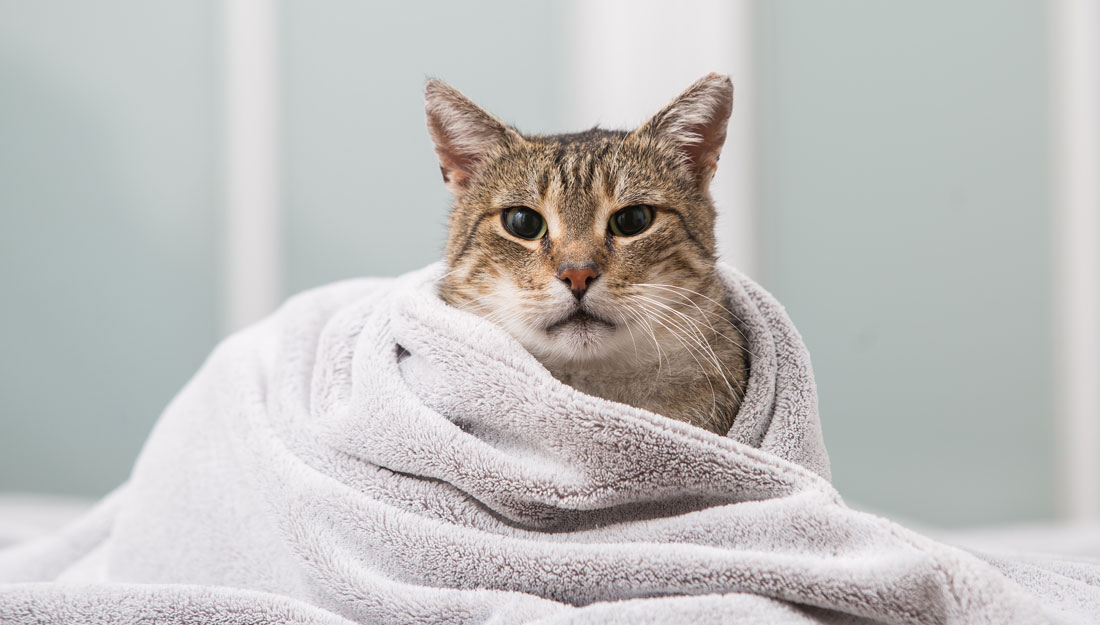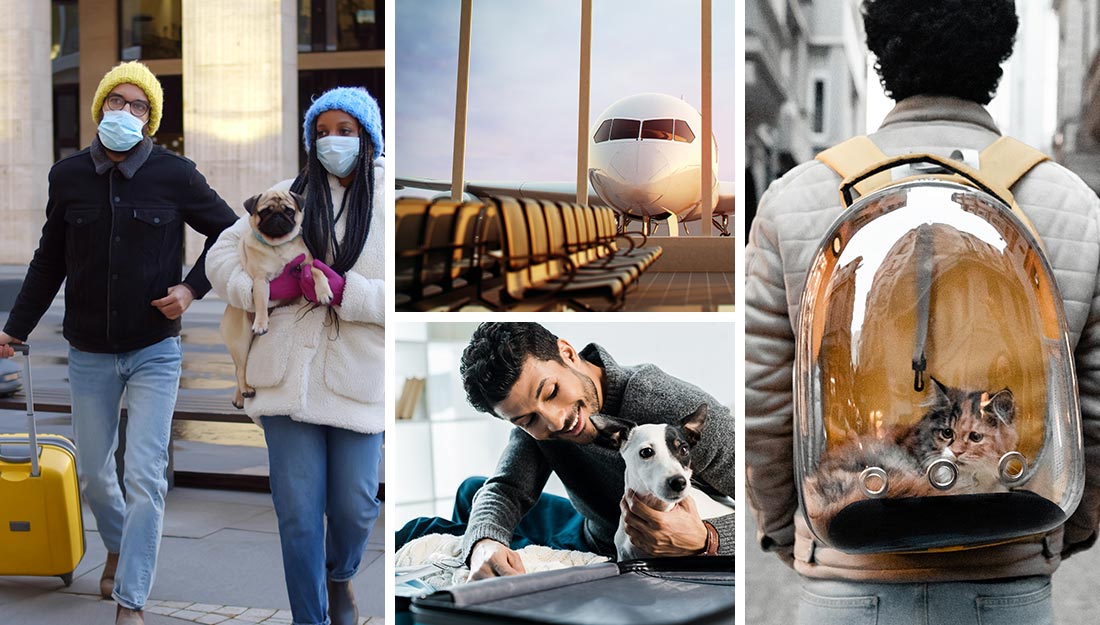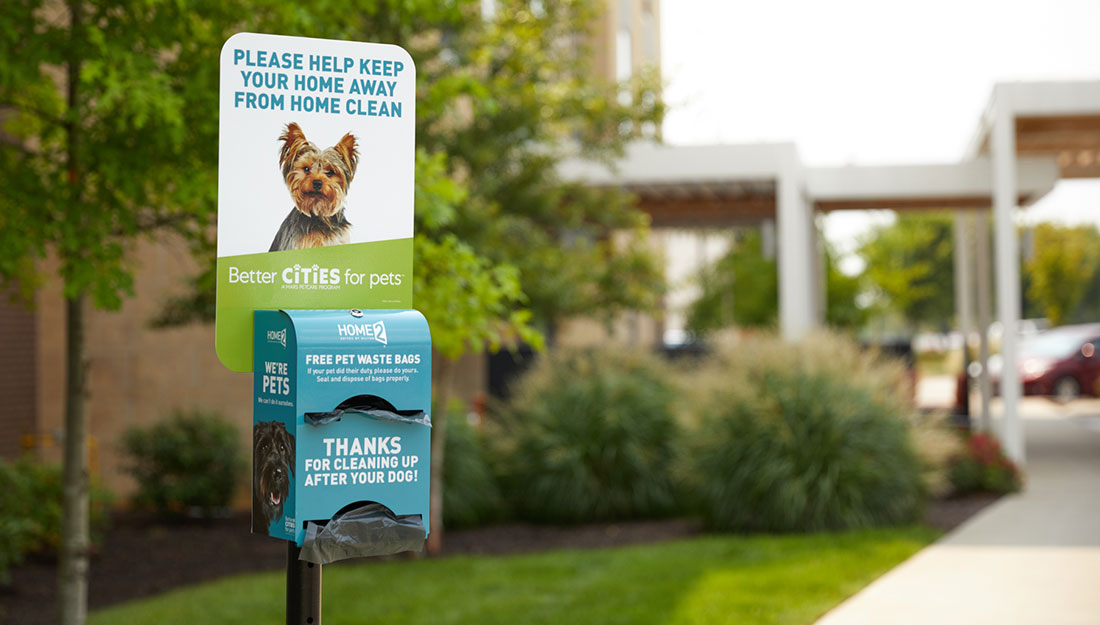Travel can come with risk for dogs and cats. They might get lost, be uncomfortable or even get hurt in unfamiliar surroundings. Plan ahead with these tips to keep your furry best friend safe and happy.
Before your trip
- Check with your vet about issues that might come up and how to be prepared. For example, different regions of the country may have different pests or greater heartworm incidence.
- Make sure your cat or dog is microchipped, the chip is registered and that the contact info for the chip is up to date. This lookup tool covers most microchip manufacturers.
- A pet tracker can help you find your pet even faster. We’re partial to Whistle devices, which can help you monitor your pet’s health, location and more.
While you’re on your way or on the go
- While driving, use a harness or kennel that’s seat-belted in place so your pet is secure if you have to brake suddenly. This also helps make sure your pet isn’t a distraction while you drive.
- Don’t let pets hang out of car windows while moving. They could fall, leap out to chase something they see, or get dust, debris or insects in their eyes or nose from the wind.
- Never leave any pet alone in a car. The temperature inside can rise almost 20 degrees in just 10 minutes, even with the windows cracked.
Pet-proofing your space
- When you arrive, check your room to see if there are any potential hazards that might tempt your pet. You know your dog or cat best, so you know if there’s anything you need to move or secure.
- If you have a pet who knocks things over, put remote controls, ice buckets, cups and other items in drawers or the closet.
- If you see electric cords, cables or phone cords that might be a temptation, arrange furniture or secure them so pets can’t reach them.
Avoiding pet poison hazards
- Put the trash can in the closet. You may toss items that could be a hazard for your pet, like food, snack bags or other items. Since it probably doesn’t have a lid, to be safe, move the trash can into the closet where your dog or cat can’t get to it.
- It’s fun to splurge on vacation but stick to pet foods only for your dog or cat. Many human foods can be harmful for pets, including nuts, garlic, onions, grapes, raisins, caffeine and chocolate.
- Store medications and vitamins in a closed drawer, not out on the bathroom counter. Some can cause life-threatening issues for pets.
General safety tips
- Always keep a secure collar on your pet. Make sure your cell phone number is clearly readable on the ID tag.
- Keep your leash or carrier by the door so it’s handy in case you need to exit quickly in an emergency.
- Always put your pet’s leash on before opening the door – whether leaving your car or your hotel room. You never know if there might be an animal or other temptation right outside.





 Your Privacy Choices
Your Privacy Choices